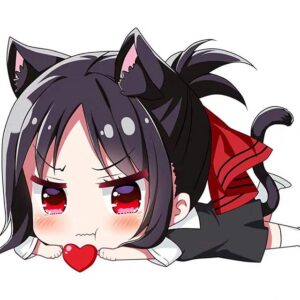Meaning of kanji 牛:

In Japanese, 牛 means “cattle”.
How to read kanji 牛:
| Kunyomi | うし |
| Onyomi | ぎゅう |
Example Sentences of kanji 牛:
| 彼女はその猫に牛乳をやった。 She gave milk to the cat. 彼らは牛や馬を飼っている。 They breed cattle and horses. 僕は牛丼を食べるのが大好きです。 I love eating beef bowl. あの牧場には乳牛がたくさんいる。 Cows abound on that farm. 毎朝、雌牛は子牛に乳をやる。 Cows give their calves milk every morning. 僕は子供の頃、いつも牛乳を飲んでいたよ。 When I was a child, I was always drinking milk. 雌牛は牛乳を供給する。 Cows supply milk. ジャックは雌牛を種と交換した。 Jack exchanged the cow for the seeds. やつらは雄牛を丸焼きにするくらいの火をおこしていた。 They had lit a fire fit to roast an ox. 彼は市場に出す牛を育てている。 He breeds cattle for market. 近頃牛肉は高い。 Beef is expensive nowadays. 神戸は良質の牛肉で有名だ。 Kobe is famous for its good beef. 水牛は牛に似ている。 A buffalo is akin to an ox. 水牛は大きな角をもっている。 Buffaloes have big horns. あれは牛ですか水牛ですか。 Is that a cow or a buffalo? 昨日は和牛が特売だった。 Japanese beef was on sale yesterday. 瓶には少し牛乳がある。 There is a little milk in the bottle. 乳牛というのは、役に立つ動物です。 A dairy cow is a useful animal. 乳牛が牧草地で草を食べているのが見えた。 We saw cows grazing in the meadow. 彼は闘牛を見たかったが、父はどうしても彼を行かせようとはしなかった。 He wanted to see a bullfight, but his father wouldn’t let him go. |
Patron-only Contents:

This website won’t exist without Patrons’ support since it’s completely ad-free.
So I made some special contents for Patrons.
It’s a way of saying thank you!